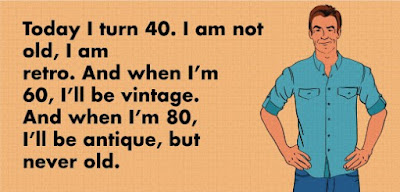英語ーレベル・アップ!

Saturday, October 31, 2015
As much/many as - I don't have as much money as Bill Gates!
Wednesday, October 28, 2015
上級-TED Talks - Secrets of success (Advanced English listening)
Richard St. John: Secrets of success
 |
| Download worksheet with vocabulary and listening practice activity |
Warm Up
Who do you think is successful? Why are they successful? What does success mean to you?
Understand and practice listening
- Read the transcript, understand the meaning of the talk and learn any new vocabulary. Match the bold words with their meaning in the chart below the text. You can look up the meaning of any other new words here: Weblio
- Watch the video and listen to Richard St. John’s talk about the 8 keys to success. Try to listen without the text, only focusing on listening.
- For extra listening practice try the ‘Fill In the Blanks’ exercise at the bottom of this PDF.
Video Transcript
This is really a two-hour presentation I give to high school students, cut down to three minutes. And it all started one day on a plane, on my way to TED, seven years ago. And in the seat next to me was a high school student, a teenager, and she came from a really poor family. And she wanted to make something of her life, and she asked me a simple little question. She said, "What leads to success?" And I felt really badly, because I couldn't give her a good answer. So I get off the plane, and I come to TED. And I think, jeez, I'm in the middle of a room of successful people! So why don't I ask them what helped them succeed, and pass it on to kids?
So here we are, seven years, 500 interviews later, and I'm gonna tell you what really leads to success and makes TEDsters tick. And the first thing is passion. Freeman Thomas says, "I'm driven by my passion." TEDsters do it for love; they don't do it for money.
Carol Coletta says, "I would pay someone to do what I do." And the interesting thing is: if you do it for love, the money comes anyway.
Work! Rupert Murdoch said to me, "It's all hard work. Nothing comes easily. But I have a lot of fun." Did he say fun? Rupert? Yes!
TEDsters do have fun working. And they work hard. I figured, they're not workaholics. They're workafrolics.
frolic means a playful behavior or action; fun. A workafrolic is means someone who enjoys working. Workafrolic is not a real word! The speaker used it for his talk because we can easily feel the meaning and it rhymes with (sounds like) workaholic, which is a real word.
Good! Alex Garden says, "To be successful put your nose down in something and get damn good at it." There's no magic; it's practice, practice, practice.
And it's focus. Norman Jewison said to me, "I think it all has to do with focusing yourself on one thing."
And push! David Gallo says, "Push yourself. Physically, mentally, you've gotta push, push, push." You gotta push through shyness and self-doubt.
Goldie Hawn says, "I always had self-doubts. I wasn't good enough; I wasn't smart enough. I didn't think I'd make it."
Now it's not always easy to push yourself, and that's why they invented mothers. (Laughter) Frank Gehry -- Frank Gehry said to me, "My mother pushed me."
Serve! Sherwin Nuland says, "It was a privilege to serve as a doctor."
Now a lot of kids tell me they want to be millionaires. And the first thing I say to them is: "OK, well you can't serve yourself; you gotta serve others something of value. Because that's the way people really get rich."
Ideas! TEDster Bill Gates says, "I had an idea: founding the first micro-computer software company." I'd say it was a pretty good idea. And there's no magic to creativity in coming up with ideas -- it's just doing some very simple things. And I give lots of evidence.
Persist! Joe Kraus says, "Persistence is the number one reason for our success." You gotta persist through failure. You gotta persist through crap! Which of course means "Criticism, Rejection, Assholes and Pressure." (Laughter)
So, the big -- the answer to this question is simple: Pay 4,000 bucks and come to TED. Or failing that, do the eight things -- and trust me, these are the big eight things that lead to success. Thank you TEDsters for all your interviews!
| Watch the video below (focus on listening!) |
Labels:
Downloadable,
listening (リスニング),
Vocabulary
Monday, October 26, 2015
懐かしい – take me back
懐かしい – take(s) me back (to a happy memory)
"These pictures take me back to when I was a child."
“I used to go to the movie theater with my Dad every Saturday. The smell of popcorn always takes me back.”
__________________________________
吉祥寺マンツーマン英会話
Friday, October 23, 2015
よくある間違いです Common Mistake - I had dinner NOT I had a dinner
"I had dinner." CORRECT
"I had a dinner." NG
With meals we rarely use the article "a" unless we use an adjective (形容詞) to describe the meal. For example:
"I had a big dinner." CORRECT
"Are you hungry? Do you wanna get lunch?"
NOT
"Do you wanna get
NOTE "Get some lunch" is also natural.
"I ate breakfast at the new restaurant on Main street."
NOT
"I ate
"At the Japanese inn (旅館) I ate a delicious dinner and then I relaxed in the hot spring (温泉) for an hour and a half."
________________________________________________________
________________________________________________________
Monday, October 19, 2015
よくある間違いです Common Mistake - Eat lunch (NOT take lunch)
Let's have lunch!
In English the words breakfast, lunch and dinner (meals) are used with the verbs HAVE or EAT. We NEVER say I
Look at these examples:
"After work I had dinner with my friend."
NOT
"After work I took dinner with my friend."
"Kevin ate lunch late today so he didn't eat very much at dinner."
NOT
"Kevin took lunch late today so he didn't take very much at dinner."
 |
| Let's eat!!! |
_____________
マンツーマン英会話レッスン
マンツーマン英会話レッスン
吉祥寺、渋谷、新宿
無料トライアル
レッスン!
ご連絡お待ちしております!
Thursday, October 15, 2015
How to make a 'TH' sound - pronunciation (発音)
________________________________________________________
________________________________________________________
吉祥寺マンツーマン英会話
Saturday, October 10, 2015
turn VS become - 何歳になります
Turn VS Become
Please look at the following example sentence:
"When I became 6 I started riding my bicycle to school."
The meaning is clear, but it's not natural English. In natural English conversation we use the verb turn when we talk about getting older. For example:
"I will turn 30 in May."
"私は5月に30歳になります。"
*Also ~ In a conversation I never say the words 'years old' when I say someone's age.
"I will turn 30 in May." NOT "I will turn 30 years old in May."
"My nephew is 9." I don't need to say 9 years old. (But if you do of course it is okay!)
"私の甥は、9才です."
A natural way to say our example sentence is:
"When I turned 6 I started riding my bicycle to school."
retro adjective using styles or fashions from the recent past
retro clothes
レトロ調の服
vintage adjective typical of a period in the past and of high quality
I like vintage stuff.
私は年代ものが好きだ
vintage wines
優良ぶどう酒.
antique adjective (of furniture, jewellery, etc.) old and often valuable
collect antiques 骨董品を収集する.
_____________
マンツーマン英会話レッスン
マンツーマン英会話レッスン
吉祥寺、渋谷、新宿
無料トライアル
レッスン!
ご連絡お待ちしております!
Thursday, October 8, 2015
よくある間違いです common mistakes - MAKE a mistake!
I made a mistake
まちがえた
Please read this example:
"Last week I had a mistake at work and my boss was mad at me!" NG
In English ‘mistake’ is a noun. (名詞)
In Japanese '間違う’ is a verb. (動詞)
In a natural English sentence the word mistake is used with the verb MAKE.
"Last week I made a mistake at work and my boss was mad at me!" CORRECT
More examples:
“I don’t want to make a mistake.”
"Don't worry, we all make mistakes."
"I made a mistake by giving him my address."
"The waiter made a mistake adding up the bill."
If you make a mistake in baseball it's called an error.
_____________
マンツーマン英会話レッスン
マンツーマン英会話レッスン
吉祥寺、渋谷、新宿
無料トライアル
レッスン!
ご連絡お待ちしております!
Sunday, October 4, 2015
Room VS house (部屋 VS 家)
Room VS house (部屋 VS 家)
Here is a conversation I sometimes have with my students:D: "Hi, how was your weekend?"
S: "It was okay, I just stayed home and cleaned my room."
In English when someone says "my room" they are talking about their bedroom. (寝室) So when my students say "I cleaned my room" I think they cleaned their bedroom. What they really mean, and what is natural to say is:
"I cleaned my house/apartment."
なぜ間違う?
When you are looking for a new apartment in Tokyo where do you go? A real estate office - 不動産
I often see signs that say ~ 部屋を探す!In English 部屋 means room so I think this where the mistake comes from....
D: "Hi, how was your weekend?"
S: "It was okay, I just stayed home and cleaned my apartment."
_____________
マンツーマン英会話レッスン
マンツーマン英会話レッスン
吉祥寺、渋谷、新宿
無料トライアル
レッスン!
ご連絡お待ちしております!
Subscribe to:
Posts (Atom)












